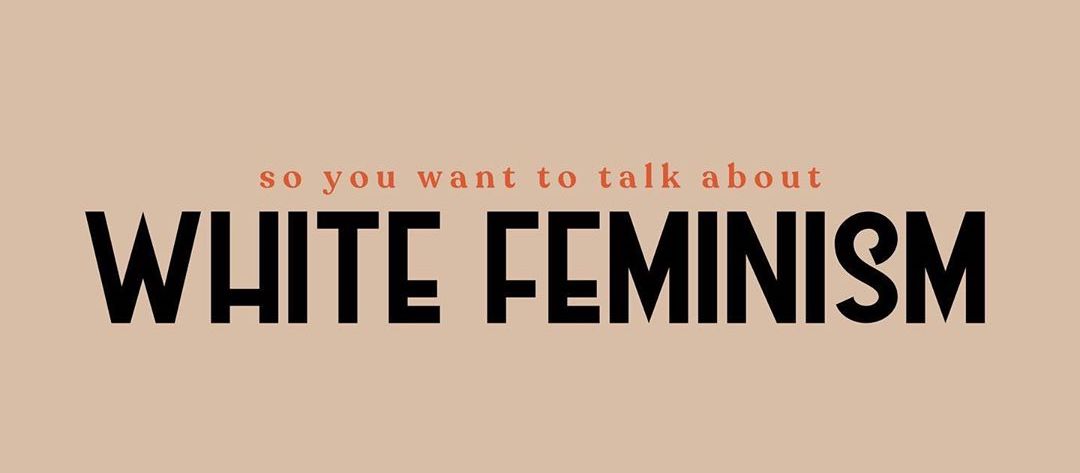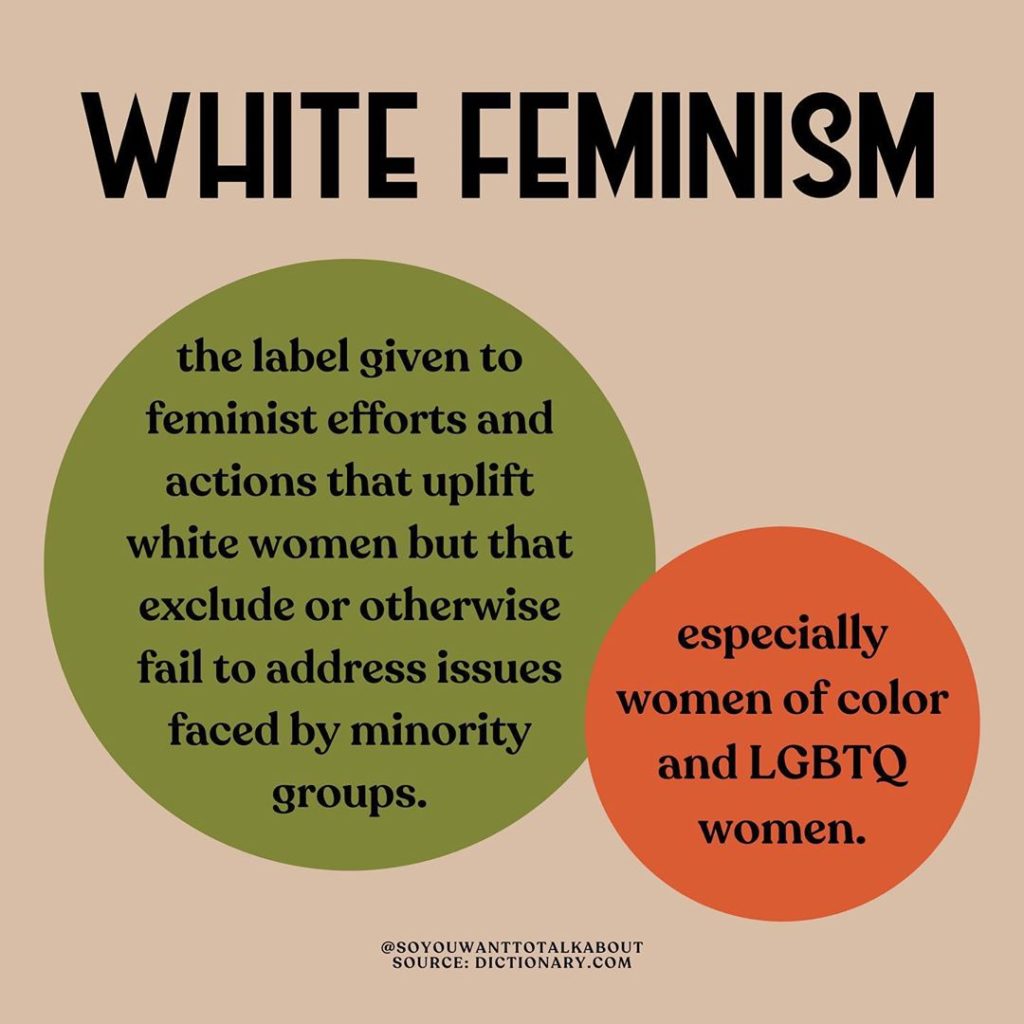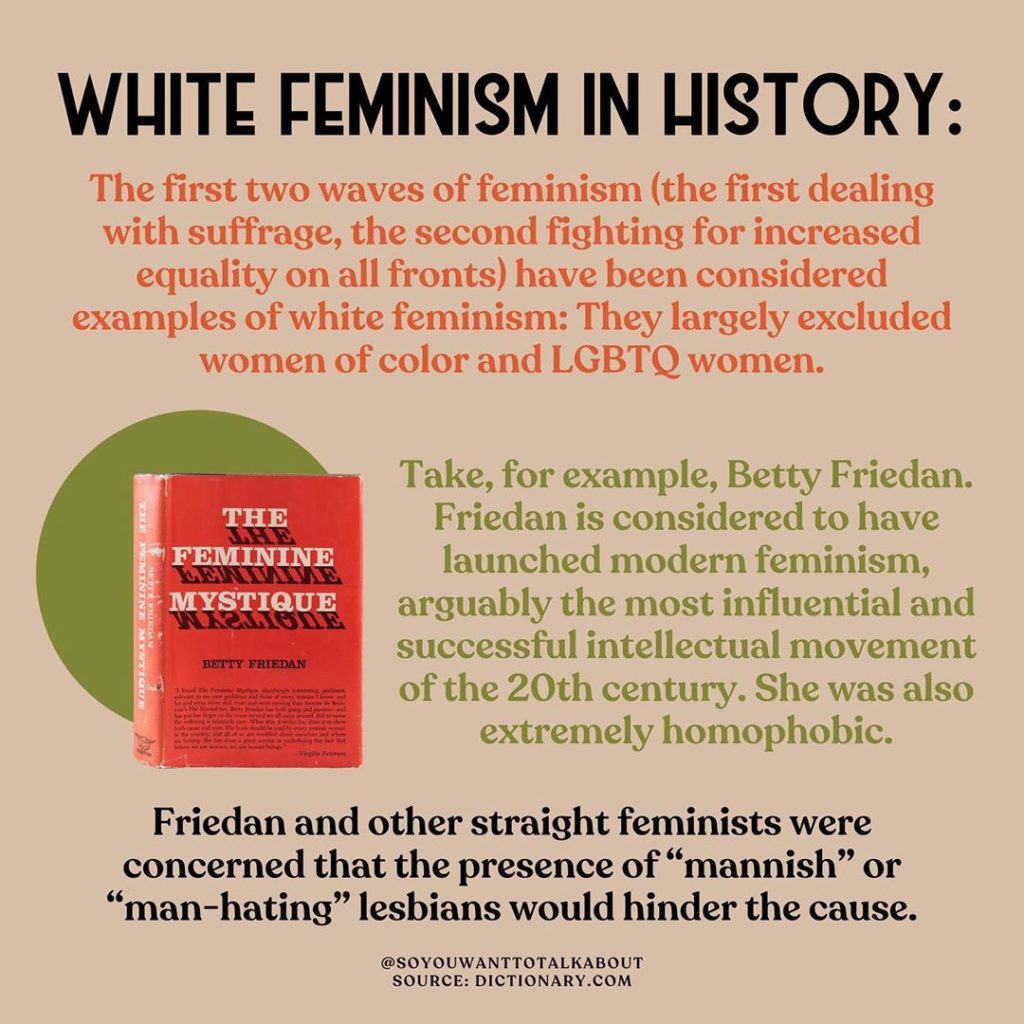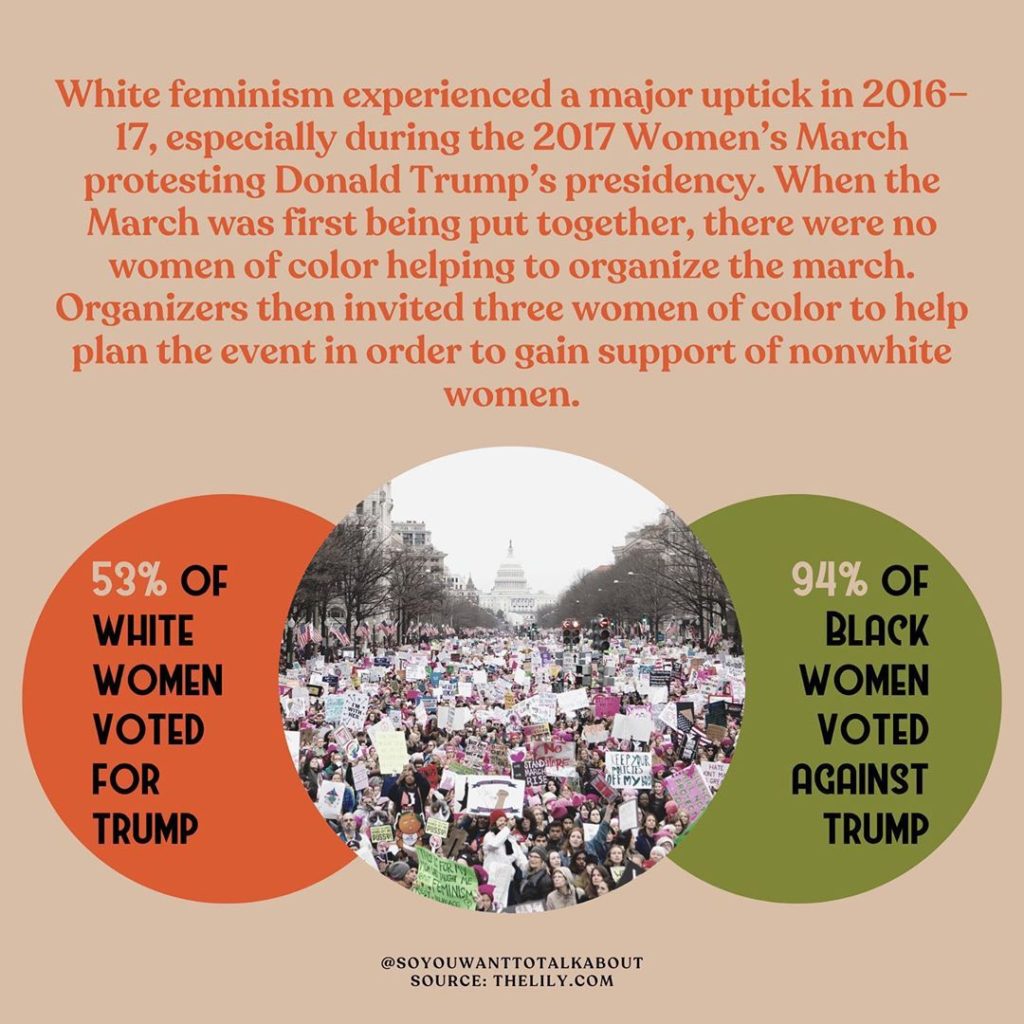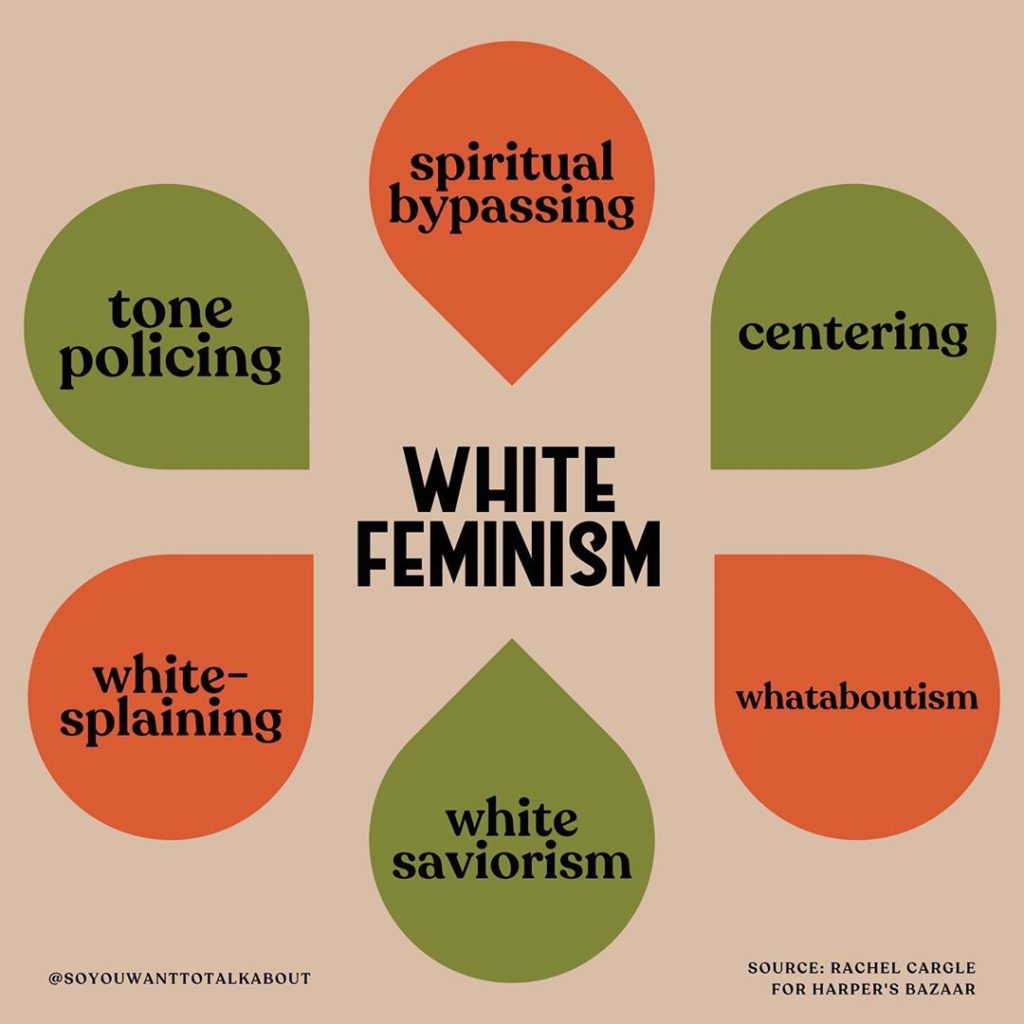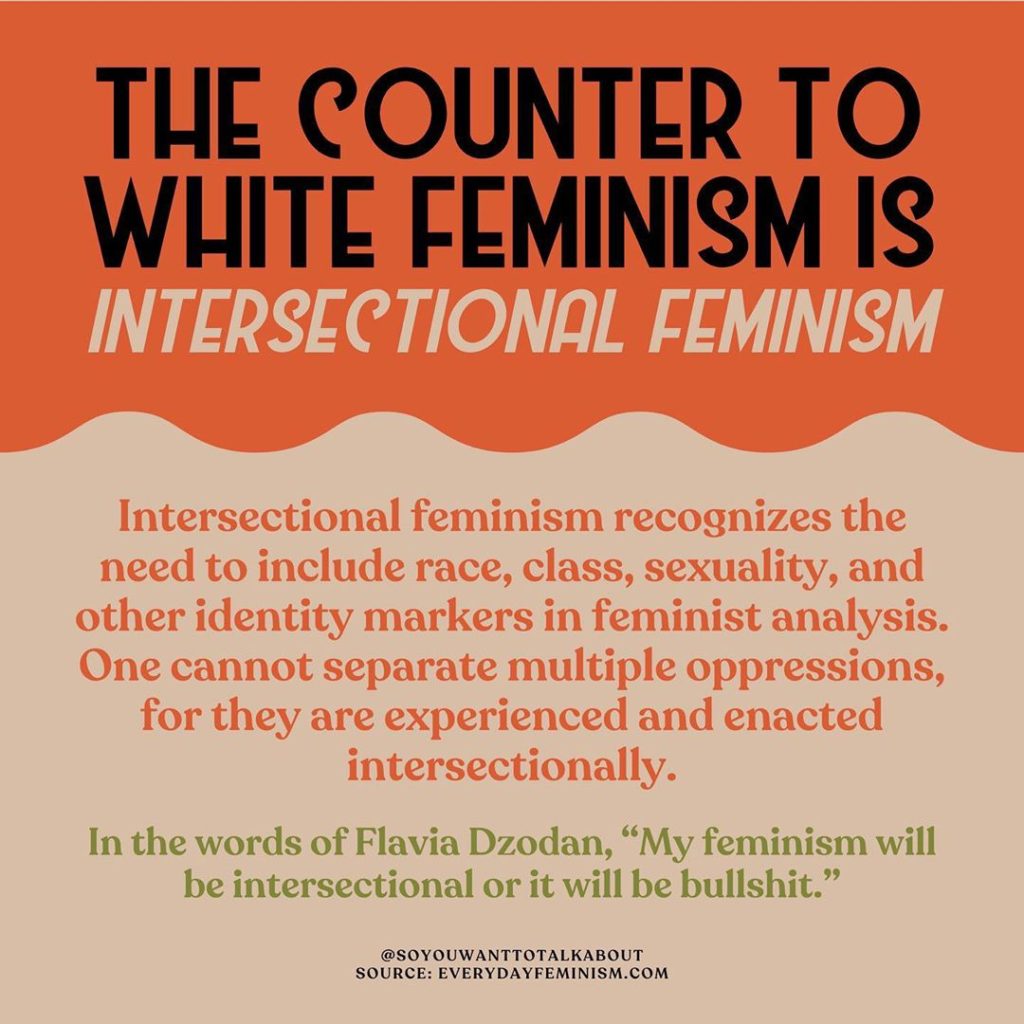so you want to talk about White Feminism, a visual guide by @soyouwanttotalkabout, which expertly explores and critiques white feminism dating back to the suffragettes to more recently the Women’s March against Donald Trump, inspired me to dig deeper into where I’m currently struggling in my feminist-meets-anti-racist work. One of the biggest challenges I face as a feminist, who is also a white woman striving to be an ally in movements for equality, specifically but not limited to the Black Lives Matter movement, is to not center my experiences in these movements (the irony of centering myself in this example is not lost on me).
Naturally, as a writer, filmmaker, and budding activist, sharing my personal stories or imbuing my art with personal experiences is a way I connect to the collective. But I think it’s important to continually check that impulse, be transparent about my own failings in the lifelong goal of being an ally, and focus on uplifting diverse stories on M@L channels and through my work.
Specifically in the case of Black Lives Matter and the movement for Black liberation, when a white woman inserts their narrative into a pro-feminist, anti-racist conversation, even with the best of intentions, she often finds herself rationalizing that “if I can just make my white family/friends/followers/viewers see through my experiences how bad something is for all women, they’ll finally wake up and listen and radical change for the Black community will be accepted.” When, in actuality, she has just elevated her white experience, thus devaluing similar yet vastly different experiences held by Black women. She could simply have given her platform over to them to share their wisdom, struggles, and history. Their stories should be enough— are enough— to demand change!
Your perspective filtered through your past does not always need to punctuate the message of the movement. Embrace believing without judgement, being led or corrected by, learning from, and amplifying those who do not share the color of your skin or journey.
In my writing, films, and conversations with family, friends, and in new relationships, I’m trying to find that balance between amplifying marginalized voices and social justice issues while sharing my truths without constantly centering myself in the work. This can be tough territory and hard to navigate. I won’t always get it right, but I am committed to an intersectional approach to feminist and anti-racist work, both of which must always go hand in hand, and be inclusive of all races, classes, sexualities and identities.
While I don’t want to diminish the value of my voice or the validity of my experiences as a woman, when using my network and platforms to shine a light on the profound impact of generations of sexism and racism, the people who uphold broken systems and ways of thinking that threaten equal rights, an equitable balance of power, freedom from oppression and white supremacy, I am forming the discipline to check my privilege and offer my seat to the next womxn before sharing.
Questions I ask myself when doing this work:
1. When can I recognize a platform is available for me, but should be used by someone else?
2. When can I leverage my voice to remove a barrier that is a hinderance to that someone marginalized?
3. When can I decenter myself and my narrative for another more poignant narrative instead?
Centering and Why it Matters… By Shana V. White, Medium, October 2018
I will continue to learn, evolve and be mindful to decenter myself if it undermines the greater mission of equality for nonwhite womxn and underserved female and gender nonconforming groups: womxn who are Black, Indigenous, Latinx, Asian, and all people of color; the LGBTQIA+ community; womxn of varying socioeconomic status, immigrants, refugees; womxn of all body types; womxn with disabilities and mental health conditions; and womxn of all ethnicities and/or religions.
My truth is never more important or significant than yours. My privilege, based solely on the color of my skin, is for me to tear down and build a stage to elevate others. The goal is to grow as an artist; to educate myself, be more vulnerable, yet responsible, with the sharing of my story while championing different narratives, equally as rich and valuable as my own, to inspire change.

